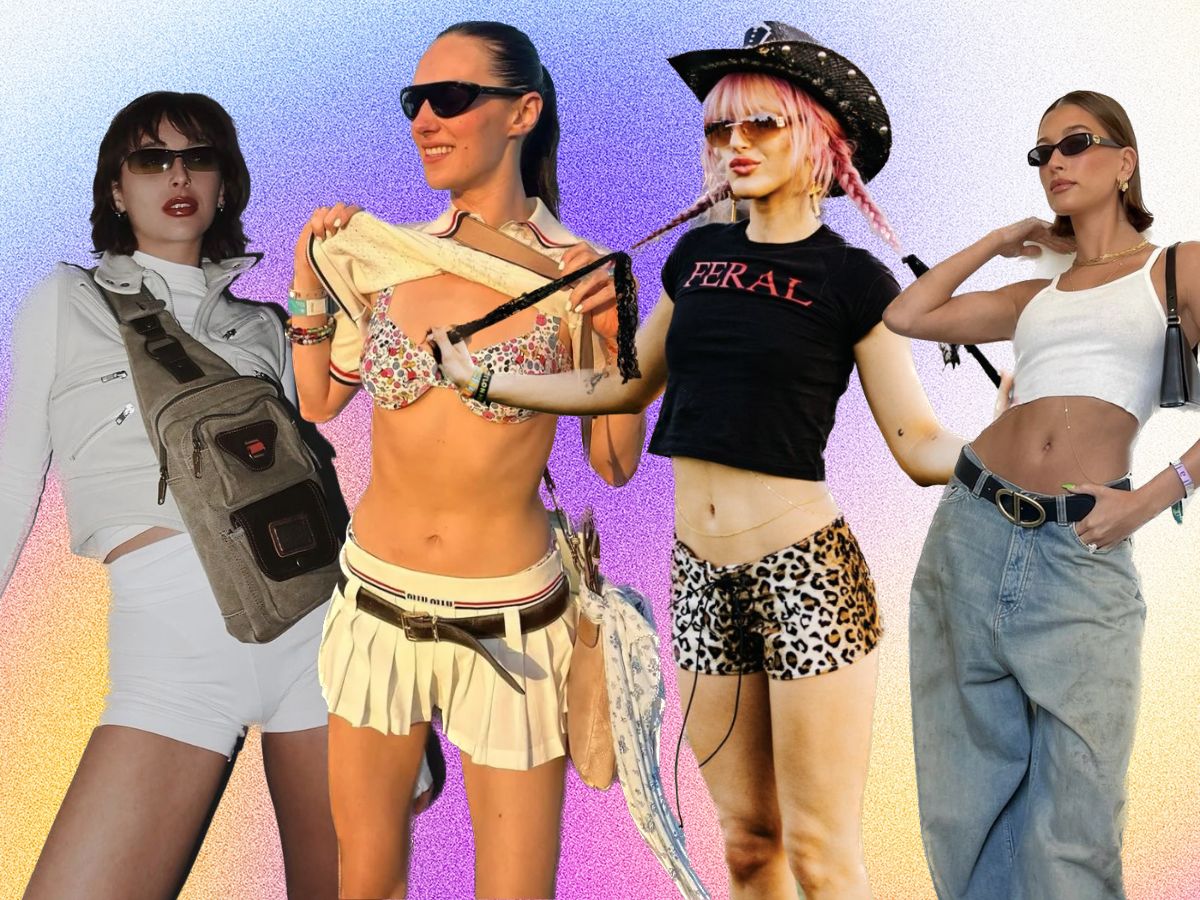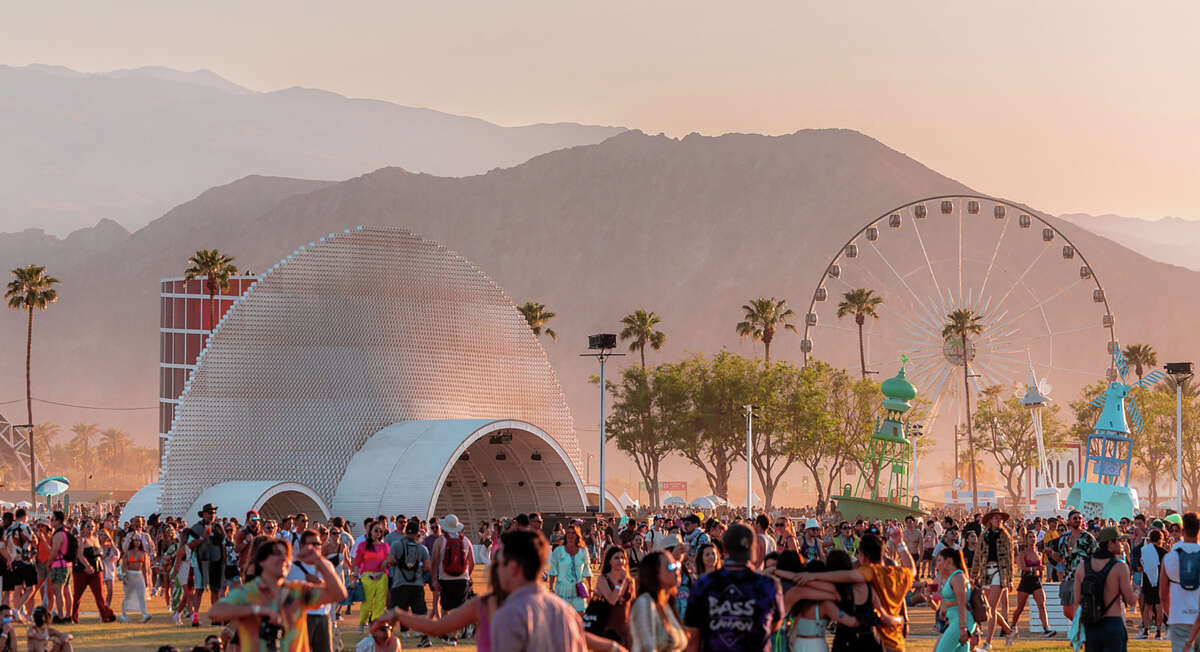
In recent years, Indio, California’s Coachella Music Festival has become every influencer’s personal playground, and it’s not because of their undying love for live music. Instead, the festival represents a style and status competition, an opportunity for online content creators to flex their positioning in a virtual hierarchy. Every April, those of us who can’t drop thousands of dollars or put our lives on pause get to scroll through social media to an endless barrage of Coachella content, where the focus is on the individual rather than the experience.
At the risk of sounding bitter, it feels like the influencer escapades that redefined the festival have ruined it for the rest of us. Instead of celebrating a culture of coming together through music, online celebrities have utilized music to create division. Having a genuinely good time comes second to photoshoots, brand reps, and exclusive event appearances. And of course, looking better than everyone else is of the utmost importance.

Ever since it became something people cared about, celebrities have set the tone for Coachella style. The festival, which debuted in 1999, opened to a crowd that preceded a chronically online era. With the lineup including artists like Rage Against the Machine, Morrissey, and Beck, packed crowds minimally concerned with fashion, wearing whatever was the most comfortable for a weekend of raging in the desert.
Over the next decade, celebrity performers and guests began to garner attention through paparazzi flicks, the style standouts arising as somewhat of an afterthought. Festival-goers dressed casually in the absence of a defined or appropriate aesthetic, with later influences of bohemian and rave styles filtering in. While costume pieces and eclectic accessories started to become more common, the intention behind these looks was purely self-expression.
Coachella 2015 marks a turning point in the festival, a moment where the rise of social media usage, celebrity attendance, and boho-hipster style intercepted to create a culturally significant monolith. All of a sudden, everyone wanted to be at Coachella, inspired by the photos of Kendall Jenner and Selena Gomez frolicking in tasseled leather vests and cutoff denim. This is the era during which Vanessa Hudgens was declared the queen of Coachella, her flowy dresses and flower crowns on Tumblr blogs everywhere.
View this post on Instagram
As innocent as this style evolution was, it marked a transition away from music as the focal point of the festival, replaced by a fascination with celebrity behavior and style that has carried into the present day. Since 2020, when the proliferation of TikTok further transformed the influencer landscape, everyone online has been vying for their share of the spotlight. Beyond an event, Coachella has transcended into an industry holiday, an opportunity for collaboration, content creation, moneymaking, and overall promotion, whether it be of individuals or brands.
Not only are the people tired of it, but the curated presence is also starting to backfire. Last year’s Coachella, which marked the first after a two-year pandemic-driven hiatus, introduced a growing rift between influencers and the public. This includes style, accommodations, and overall experience, demonstrating that the more influencers appropriated elements of the festival for their online content, the less everyday people could relate.
One infamous moment of the sort was that year’s catastrophic Revolve Festival. An invite-only event for a fashion-forward crowd, Revolve Festival encroached on the regular festival’s lineup with separate artist performances. After videos surfaced of attendees chasing down shuttles and waiting hours in line without food or water, onlookers seemed to rejoice at the influencers’ attempt at exclusivity gone wrong. With alleged accounts of content creators demanding accommodations and asserting their importance over others, foundational cracks in a ruse of status-driven superiority began to grow.
The controversy ended up carrying over into Coachella 2023 when influencers once again began to garner negative online attention. At the Celcius Oasis Vibe Party, content creators were shown meandering about with free drinks, but what really grabbed viewers’ attention was the DJ stage. Popular EDM duo Louis the Child was the musical guest, spinning to a totally vacant crowd. No one seemed to be interested in the performance, yet the multiplatinum artists had played a packed, vibrant set for regular festival attendees the year before.
View this post on Instagram
This humorous discrepancy in attitude toward the musical acts prompts a greater discussion around the differences between the treatment of influencers and regular festival-goers. While content creators stay in luxury condos with sponsored accommodation, onsite campers wait hours in line for used communal showers and portapotties. Loren Gray, a TikTok creator with over 54 million followers, even exposed other influencers in a mega-viral video where she claims many of them fake festival attendance for online clout. Gray claimed these influencers would rent AirBnBs in the desert, get their hair and makeup done, and pose for photos in brand new outfits – all to not even set foot in Coachella.
Overall, there seems to be another momentous shift happening, one much like that during Coachella 2015. However, it’s a shift in the opposite direction: influencers are quickly becoming outdated, and festival-goers are turning back towards comfort and embracing the music. Even established celebrities, with generally less of a desire to flex than their less significant counterparts, have returned to toned-down outfits with a bohemian flow. It’s become cool again to not care so deeply – or at least pretend not to – and ditch a manufactured experience in favor of letting loose.
It will be interesting to witness how Coachella as a cultural phenomenon will continue to evolve throughout the 2020s. If one thing is for certain, it’s that influencers are beginning to fade from the focal point of popular culture. If anything, this could encourage the masses to return to something that once belonged to them and to embrace an experience that, albeit messy or inconvenient, is real and fun (intended to be, at least). Really, the only significance that Coachella maintains is in the memories of joyous days and crazy nights held by two decades of performers and festival-goers.


